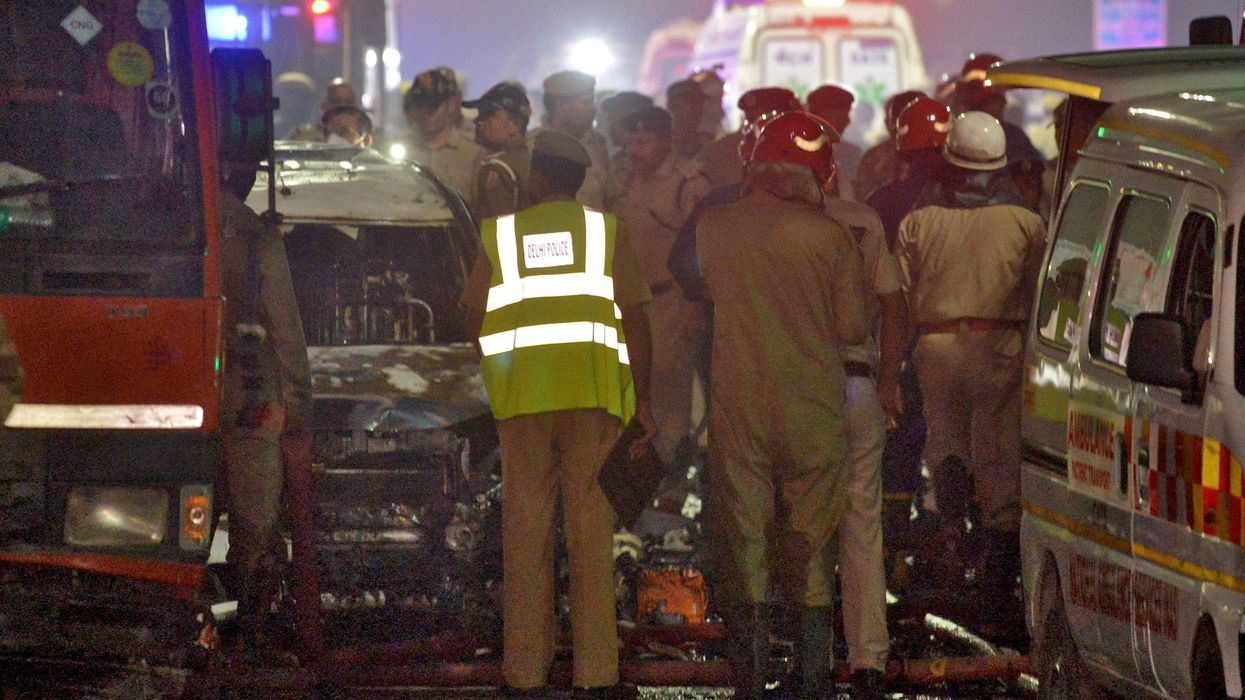COMMEMORATING 20 years of the Kargil War, the IAF Monday (24) turned the Gwalior air base virtually into a theatre of conflict with a dramatic reenactment of some milestones of the 1999 operation.
In a symbolic recreation of the Tiger Hill attack in Jammu and Kashmir's Drass-Kargil area, the air force used the Mirage 2000 aircraft and explosives were blown up on a 'model hill' to recreate the crucial events of the war.
The chief guest for the event is Air Chief Marshal BS Dhanoa.
The IAF has planned several activities at the air base to commemorate the 20 years of the war and the symbolic recreation of the Tiger Hill attack was one of them.
Five Mirage 2000, two MiG 21s and one Sukoi 30 MKI were on static display at the base. One of the Mirage 2000 aircraft showcased the Spice bomb carrier. The bomb was used in the Balakot airstrike in February.
The aircraft is undergoing upgrade which will extend its life by another 20 years, said Air Marshal Rajesh Kumar, Air Officer Commanding-in-Chief of Central Air Command (CAC) of the IAF.
Three squadrons of Mirage are based at the Gwalior Air Force Station.
"The Kargil conflict offers an exemplary experience in the use of air power in warfare in high mountains conditions and is key to full understanding of India's emerging posture," a senior IAF official said. Several gallantry award winners, both serving and retired, who participated in 'Operation Vijay' are attending the event.
The Indian armed forces displayed exceptional valour while successfully dislodging the enemy from the strategic hill in the Drass-Kargil area, an official said.
The Mirage-2000 aircraft played a crucial role in the battles fought during the war and also hit enemy targets bunkered in at the Tiger Hill.
During the war, the IAF had conducted operation Safed Sagar as a part of Operation Vijay of the Army.
A number of events have been planned by the Army in Delhi and in Jammu and Kashmir's Dras town next month to mark the 20th anniversary of the 'Kargil Vijay Diwas', officials had earlier said.
The anniversary celebrations for this year will be spread over three days from July 25-27.
"However, as part of the build up to the main event, numerous activities have been planned all over the country from the first week of July," an official said.
The celebrations in the national capital will begin on July 14 with the illumination of a 'Victory Flame' from the National War Memorial in Delhi, which would traverse through 11 towns and cities to finally culminate at Dras where it will be merged with the eternal flame at the 'Kargil War Memorial', he said.
The objective of these celebrations is to evoke feeling of patriotism through nationwide campaigns, especially among the youth and to pay homage to the valiant soldiers.
"The Kargil War will always be remembered for its strategic and tactical surprises, the self-imposed national strategy of restraint in keeping the war limited to Kargil-Siachen sectors, and the swiftly executed tri-services military strategy and plans," the Army had said.
(PTI)












